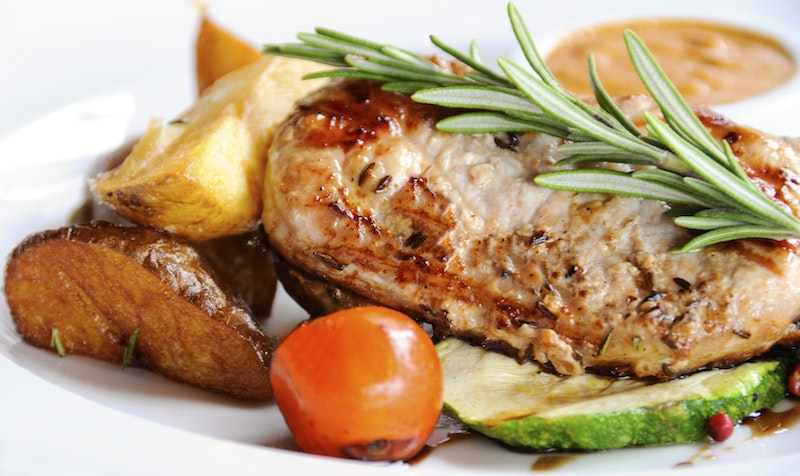There’s something about cooking over a flame that’s exciting and satisfying. Just look at all those popular cookbooks, TV shows, and blogs. Seems like no one can resist the allure of grill marks, especially super chef Bobby Flay. But is it healthy? Many doctors would say no.
The trouble is when we cook meat at high temperatures — on a grill, in an oven, or on an open campfire, for that matter — the proteins in meat can form compounds called HCAs (that’s heterocyclic amines) and PAHs (polycyclic aromatic hydrocarbons). There’s evidence that HCAs in well done, charred, or smoked meats may increase cancer risk, but it’s a tough thing for many people to give up.
Fortunately, there a great way to hack your grilling and make your food safer:
- Use marinades and spices. Not only do they make the meat tender and taste delicious, studies show that marinades and spices can prevent HCA formation by up to 90 percent. Citrus, vinegar, and soy marinades are good options, but watch out for sweet barbeque sauces; they’re not as effective, and the sugar might even create extra HCAs. And go to town with spices! Rosemary is the big winner so far — one study found it cuts HCAs in beef by nearly 90 percent. Other spices, like thyme, black pepper, garlic, ginger, turmeric, and lemongrass, can also reduce HCAs.
For even safer grilling, try these tips:
- Use a gas grill. Smoky charcoal and wood produce a lot more toxins than clean-burning gas. If you prefer the heat from charcoal or wood, use additive-free charcoal and dry hardwoods, and make sure they are hot and burning cleanly.
- Use low heat, and don't overcook. Try to minimize cooking time above 375 F, because that's the danger zone for HCA formation. One way to cut time is to use smaller or thinner cuts of meat. Well- or very well done meats form a lot more HCAs, so try to keep yours juicy and medium-well or under. To make sure your food isn't undercooked, use a meat thermometer. (Chicken needs to cook to 165 F, ground meats to 160 F, and cuts of beef, pork and fish should reach 145 F.)
- Don’t char or smoke your meat. We know, it’s delicious … but sorry, it’s just not good for you. Smoking adds HCAs just like grilling (so does liquid smoke, which is actually made of smoke collected in condensers).
- Avoid fat flare-ups. These can deposit chemicals like PAHs from the flame onto to the meat. Plus, it can make your meat taste like smoke, and not in a good way.
- Go for variety. There’s no clearly safe meat for grilling — they can all form HCAs, especially if overcooked. Red meat (beef, pork, and lamb) can increase your colon cancer risk, whether it’s grilled or not. Depending on how it’s cooked, grilled and roasted chicken can have more of the worrying chemicals than even red meat. In one study, rotisserie chicken skins had almost 15 times the HCAs found in fully cooked bacon. With their lower cook times, fish and other seafood can be safer, but one study found high HCAs in very well done fish too, especially when cooked with skin on.
When you’re celebrating outdoors this summer, you don’t have to give up your grill — just play it smart. And remember, you can always grill fruits and veggies with no fear of HCAs. Broccoli and asparagus taste great with a little char, and grilled peaches and pineapples make a wonderful addition to a salad or side dish.
Selected references
National Cancer Institute. Chemicals in Meat Cooked at High Temperatures and Cancer Risk. NCI website.
Smith JS, Ameri F, Gadgil P. Effect of marinades on the formation of heterocyclic amines in grilled beef steaks. Journal of Food Science. August 2008. [Link]
DEEPI BRAR
Rally Health






